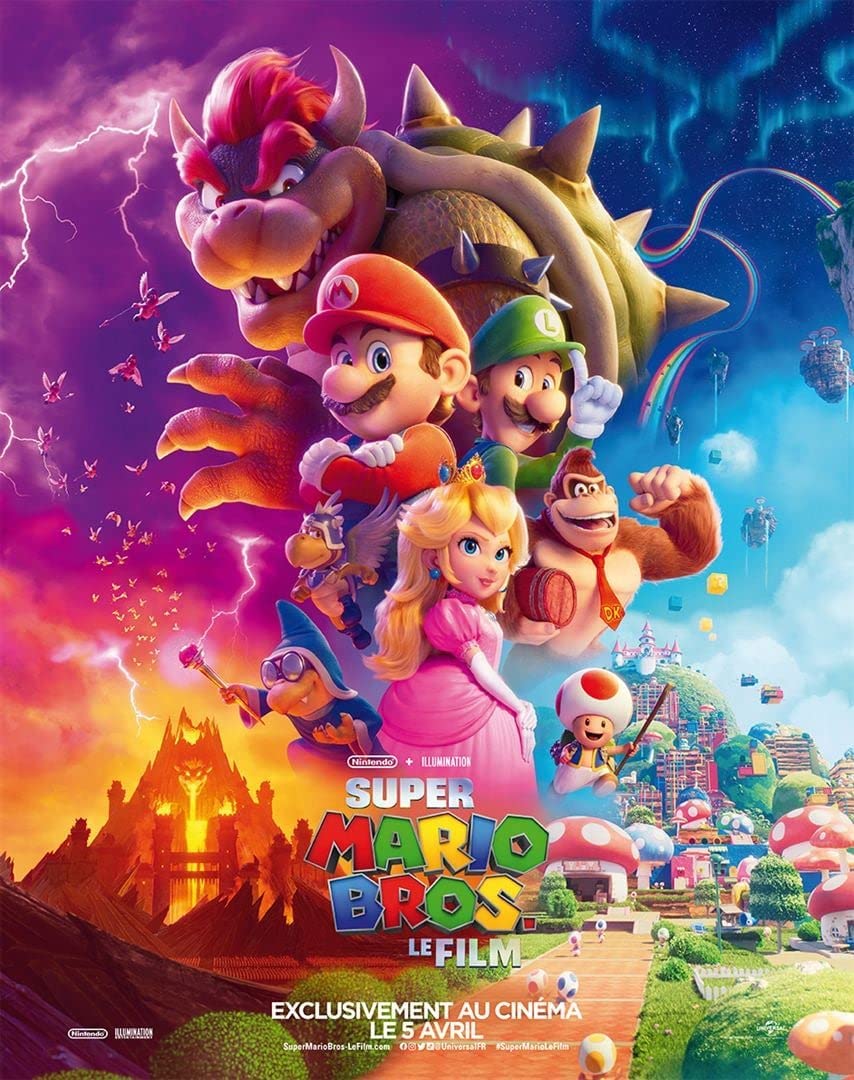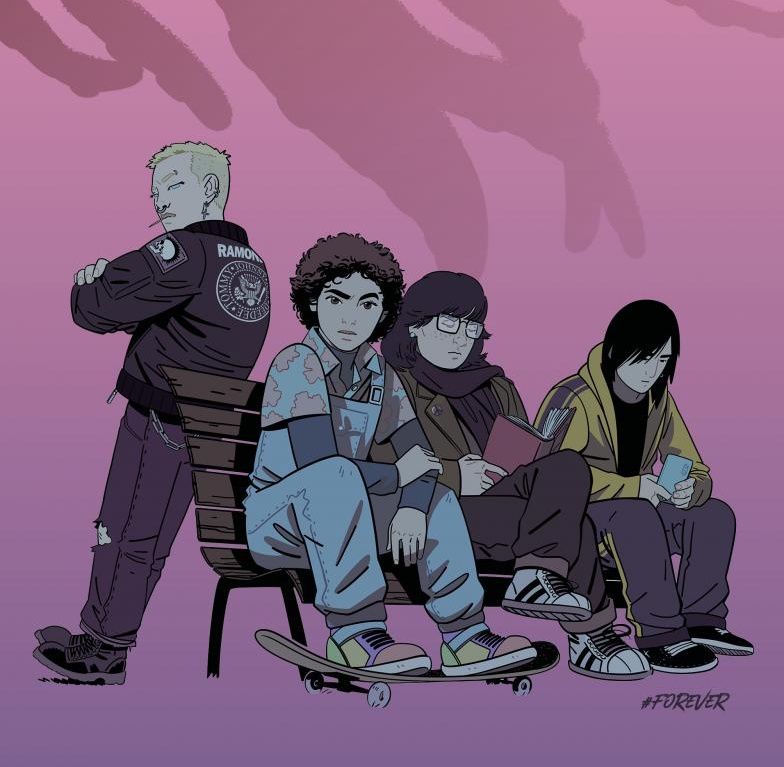The Cloud is Just Philippot's first feature film. While the film is released this Wednesday, June 16 in theaters, we had the chance to meet the filmmaker and his main actress, Suliane Brahim, to promote this extraordinary work. The Cloud is a French genre film like few of them, somewhere between social film and horror film. This interview was conducted with other media (CinéVerse, The Cliffhanger Chronicles and Cult Film) during a fascinating round table.
How did you manage to realize this ambitious project?
Just Philippot: It came in a bit of a special setting because I didn't write the script. It was Jérôme Genevray and Franck Victor who took care of it, on an original idea of Jérôme. I had a rather special journey and above all a real stroke of fate. I arrived on La Nuée a bit by chance. Basically, I made a short film called Acid, which did very well. Thierry Lounas (the founder of these residences, at Capricci) liked my film and came to see me in Clermont-Ferrand to talk to me about the project. He told me:
"You seem to be a cloud specialist, I would like you to meet Franck and Jerome because I have an insect cloud project. There is also a family, a closed session, things that are similar to what you have been able to do. It can be a very good way to make a first feature film."
So I discover the script, I meet Franck and Jérôme, and from there, there are exchanges that take place in an environment that was conducive to a synthesis between several cinemas.
The film has many American inspirations, but remains very French. How do you explain this?
Just Phillipot : There are several things. He must, on the one hand, be French, because he is shot in Auvergne and Lot-et-Garonne, so he could not pretend to avoid the setting in which he was. The second thing is that in France we are lucky to have "arthouse" theaters and theaters with blockbusters. Today we all know how to synthesize creative documentary with popcorn cinema. And La Nuée is a synthesis of this system. Besides, I was told about some films, either that I had not seen, or that inspired me unconsciously. A friend of mine said, "But this scene is Jurassic Park. That scene is Alien." And more recently my film has been compared to The Chainsaw Massacre that I haven't even seen.  All these films feed each other, talk to each other. There is a synthesis that happens in a natural way, and this is the strength of cinema in France. We wanted to stick to a cinema we love. Create a bridge between realism and fantasy. Starting from Auvergne to succeed in going towards a swarm of aggressive grasshoppers as in an American film. And we should not miss this side. Find ways to access a so-called spectacular cinema. I find that in France there are sometimes films that lack generosity towards the spectators. There we had a team that encouraged this risk-taking.
All these films feed each other, talk to each other. There is a synthesis that happens in a natural way, and this is the strength of cinema in France. We wanted to stick to a cinema we love. Create a bridge between realism and fantasy. Starting from Auvergne to succeed in going towards a swarm of aggressive grasshoppers as in an American film. And we should not miss this side. Find ways to access a so-called spectacular cinema. I find that in France there are sometimes films that lack generosity towards the spectators. There we had a team that encouraged this risk-taking.
Suliane, how do you see your character?
Suliane Brahim: I was more empathetic with my character. The character is like that. It is only at the end that she questions herself. She leaves her head in the handlebars, and she loses her footing. She thinks she has a horizon, but she faces the wall. The film focuses on her. (laughs) I liked this portrait of a single woman, with her two children, that there is no man around. To get there, there must have been something that touched me. This portrait of a single mother is a strong subject. Even if it's not the main topic. This film has a lot of little facets, and is about a lot of things. I was in total understanding of this character.
How do you direct your actors?
Just Philippot: I realize how important the tension on set can be. When you fall into chaos, in a disaster movie, you have to give a there, because you totally deconstruct the chronology. You know that movies are often shot in any direction, and it's sometimes difficult for actors to have this kind of emotional arc. It is difficult afterwards to avoid false fittings and game faults. So I tried to be constantly there for my actors and give them a sense of aggressiveness and chaos. Especially when you get to the end it has to go up. I felt like I was 12 years old sometimes explaining my fantasies. I told them "trust me, you haven't gone far enough yet". So at this stage you don't say the actions in the same way. I lived the scenes with them. I screamed, I gesticulated… Impossible to let them go. I couldn't ask them to do their job without giving them the means to imagine things as well. 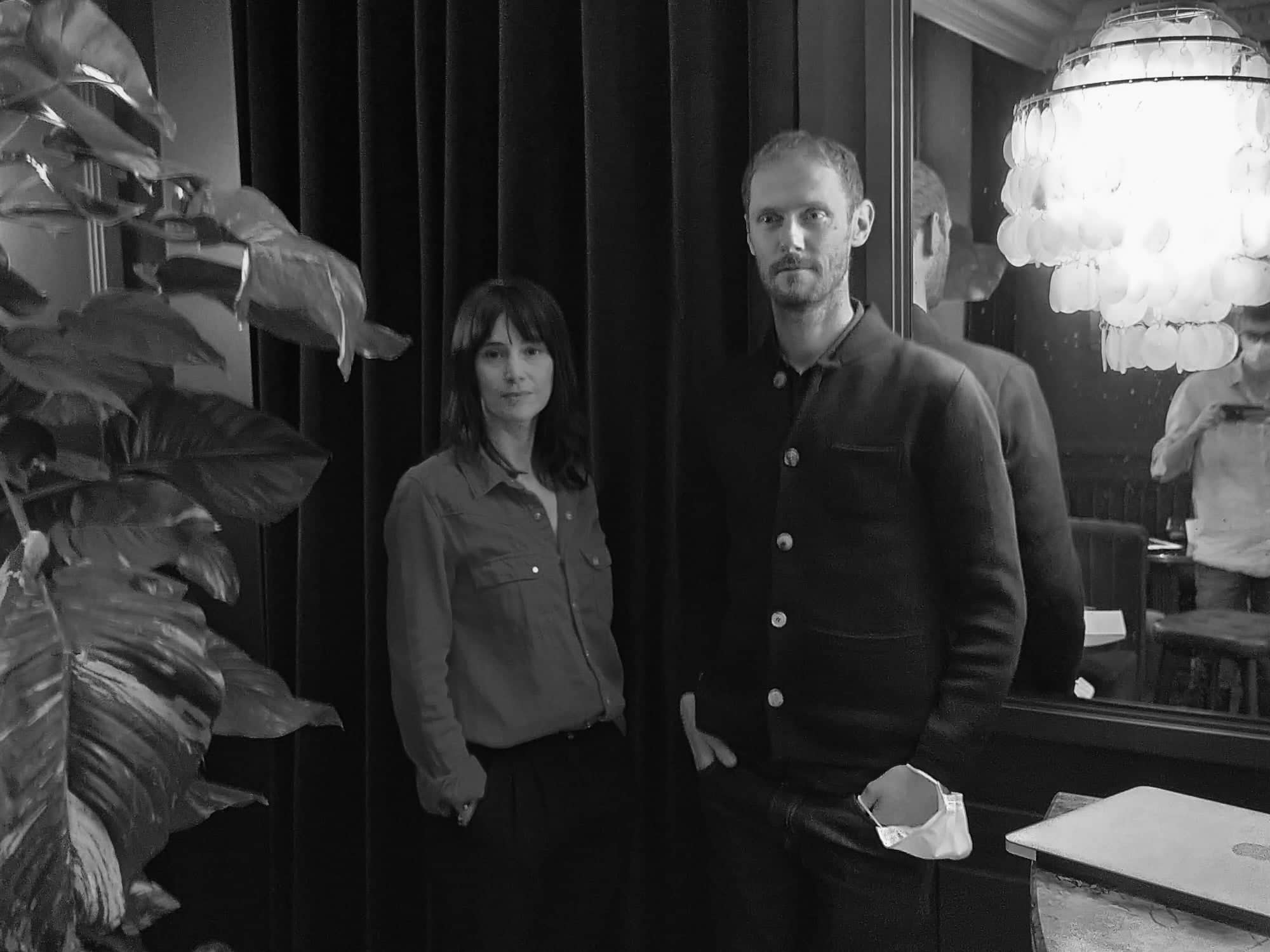 It's exhausting and at the same time it's galvanizing. Just the fire sequence, for me it was James Bond. I went to hug them because I felt they were risking their lives. But in a secure perimeter of course. Thus, the staging is also a game of tension on board. You have to be tough when you need to be tough and flexible when you need to be. I gave them as much information as possible and left them as free as possible in this precision to bring what they thought was best for their characters. Suliane Brahim: A shoot is a crossing. It is an implication. The relationship between director and actors is essential. Sometimes without talking to each other, when things go well, we are able to understand each other. We don't need to say everything. The actor enters more and more into the skin of the character. There is a whole timing to manage. Relationships change from day to day. It's a collective crossing, with the director too. We had a lot of freedom, and I love it. Especially since we are quite instinctive actors. It's all stupid but an actor needs to feel good. If I'm there and I'm not well, nothing will be good. You have to be good where you are and with your partners.
It's exhausting and at the same time it's galvanizing. Just the fire sequence, for me it was James Bond. I went to hug them because I felt they were risking their lives. But in a secure perimeter of course. Thus, the staging is also a game of tension on board. You have to be tough when you need to be tough and flexible when you need to be. I gave them as much information as possible and left them as free as possible in this precision to bring what they thought was best for their characters. Suliane Brahim: A shoot is a crossing. It is an implication. The relationship between director and actors is essential. Sometimes without talking to each other, when things go well, we are able to understand each other. We don't need to say everything. The actor enters more and more into the skin of the character. There is a whole timing to manage. Relationships change from day to day. It's a collective crossing, with the director too. We had a lot of freedom, and I love it. Especially since we are quite instinctive actors. It's all stupid but an actor needs to feel good. If I'm there and I'm not well, nothing will be good. You have to be good where you are and with your partners.  Just Philippot: It is important to give back to Caesar what belongs to Caesar. This is where you realize the importance of your film team. Already there is the script that will give all the fundamental information about what you miss. There is a first wizard that creates timelines. We felt things on set together. But because I had collaborators who understood what I wanted. And then there is an editor who continues in this movement. When you find your team, you feel much more surrounded and less likely to make mistakes. It's easy to say that I knew how to manage my actors, but it's a group affair. Suliane Brahim: There is a collective adventure side. Our producer believed in this way of producing films. Sometimes we have found solutions collectively. And it's super beautiful. It puts a borrow in the film. It's an adventure and luckily.
Just Philippot: It is important to give back to Caesar what belongs to Caesar. This is where you realize the importance of your film team. Already there is the script that will give all the fundamental information about what you miss. There is a first wizard that creates timelines. We felt things on set together. But because I had collaborators who understood what I wanted. And then there is an editor who continues in this movement. When you find your team, you feel much more surrounded and less likely to make mistakes. It's easy to say that I knew how to manage my actors, but it's a group affair. Suliane Brahim: There is a collective adventure side. Our producer believed in this way of producing films. Sometimes we have found solutions collectively. And it's super beautiful. It puts a borrow in the film. It's an adventure and luckily. 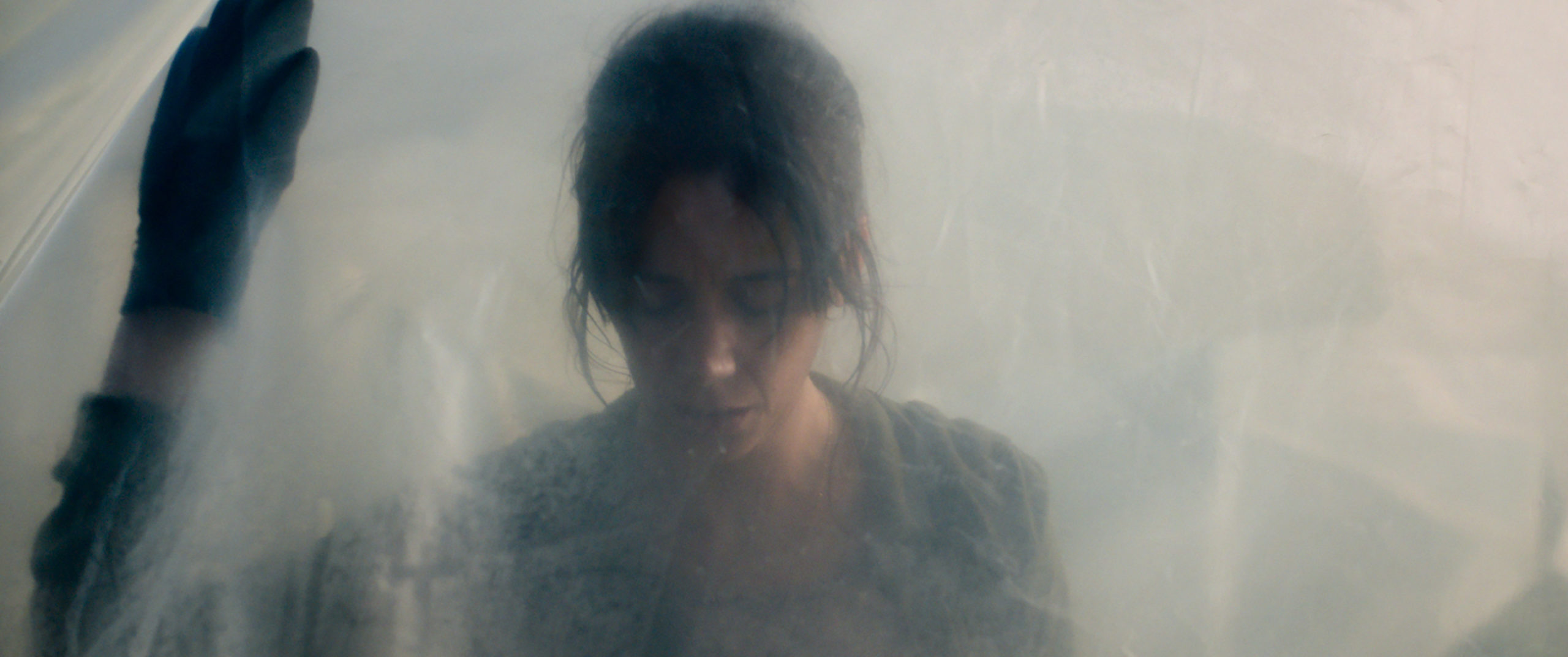 Just Philippot: It saves you from making mistakes alone. There at least there were many proposals, which is convenient for editing. The goal of a director is to be as frustrated as possible during editing. What you do is arrive in editing and be a penard. Not to be lacking images or sound. The short film is already a good school, but the feature film offers a totally different scope vis-à-vis this material.
Just Philippot: It saves you from making mistakes alone. There at least there were many proposals, which is convenient for editing. The goal of a director is to be as frustrated as possible during editing. What you do is arrive in editing and be a penard. Not to be lacking images or sound. The short film is already a good school, but the feature film offers a totally different scope vis-à-vis this material.
Why is your film so grounded in reality? How did you decide on the limit to put on the fantastic?
Just Philippot: I will try to be as honest as possible. There are cinemas that I don't like actually. Types of stories I don't believe in at all. And when I don't believe it, it's not worth it. I anchored this film as much as possible in what I love about cinema. I wanted to believe this story. I was trying to tell myself that it was a true story, at least likely. I deliberately anchored the film in what I like and in this mixture of universes that I appreciate. Because I think that if we had gone further in the fantastic I would have broken my relationship to this type of film that I want to make.  I had this criticism there. That it was a little timid in the fantastic aspect. And I'm super annoyed because frankly I don't know how we could have gone further. I wanted to stay on this bridge between the real and the fantastic. And I don't see how I could have pushed the cursors apart from filming attacks. And even, these attacks I do not see how I could have staged them, because we would have fallen into a delirium like The Mummy. Stuff that we know, that we've seen before, and that was done by brilliant guys, or not for that matter. I wasn't too interested in making this type of film. I didn't want to see stuff I've seen before. I wanted to talk about our world today, I wanted to make a metaphor for our time: mad cow disease, Chernobyl, Covid, have always made the same mistakes…And what makes this woman even more interesting is that she is the image of our world. She does this for her children but she's destroying the Earth they're supposed to grow up on.
I had this criticism there. That it was a little timid in the fantastic aspect. And I'm super annoyed because frankly I don't know how we could have gone further. I wanted to stay on this bridge between the real and the fantastic. And I don't see how I could have pushed the cursors apart from filming attacks. And even, these attacks I do not see how I could have staged them, because we would have fallen into a delirium like The Mummy. Stuff that we know, that we've seen before, and that was done by brilliant guys, or not for that matter. I wasn't too interested in making this type of film. I didn't want to see stuff I've seen before. I wanted to talk about our world today, I wanted to make a metaphor for our time: mad cow disease, Chernobyl, Covid, have always made the same mistakes…And what makes this woman even more interesting is that she is the image of our world. She does this for her children but she's destroying the Earth they're supposed to grow up on.
Regarding the purpose of the film, your intention to stage was rather optimistic, neutral or basically, pessimistic?
Just Philippot: We were talking about it just before. I think ten years ago, we had the right to have optimistic endings with characters who got by, and who learned from their mistakes. Today, with the world in which we live, this is no longer possible , we must make a choice, there is necessarily a loss. We wonder what we will have left tomorrow. Will we have that much water, food, etc… We wonder what we will lose. And today, I think cinema asks the same question. Acid it already ended very badly. But at the same time my distributors told me that they would like us to talk about the film without the end being too dark, or the observation too pessimistic. This woman, in any case, wanted to offer her daughter a world in which she can grow up. And that's a positive observation. She comes out wounded, but she manages to carry her daughter to another day. There is a sincere look that is made. Beautiful ending or not, it looks like our world. 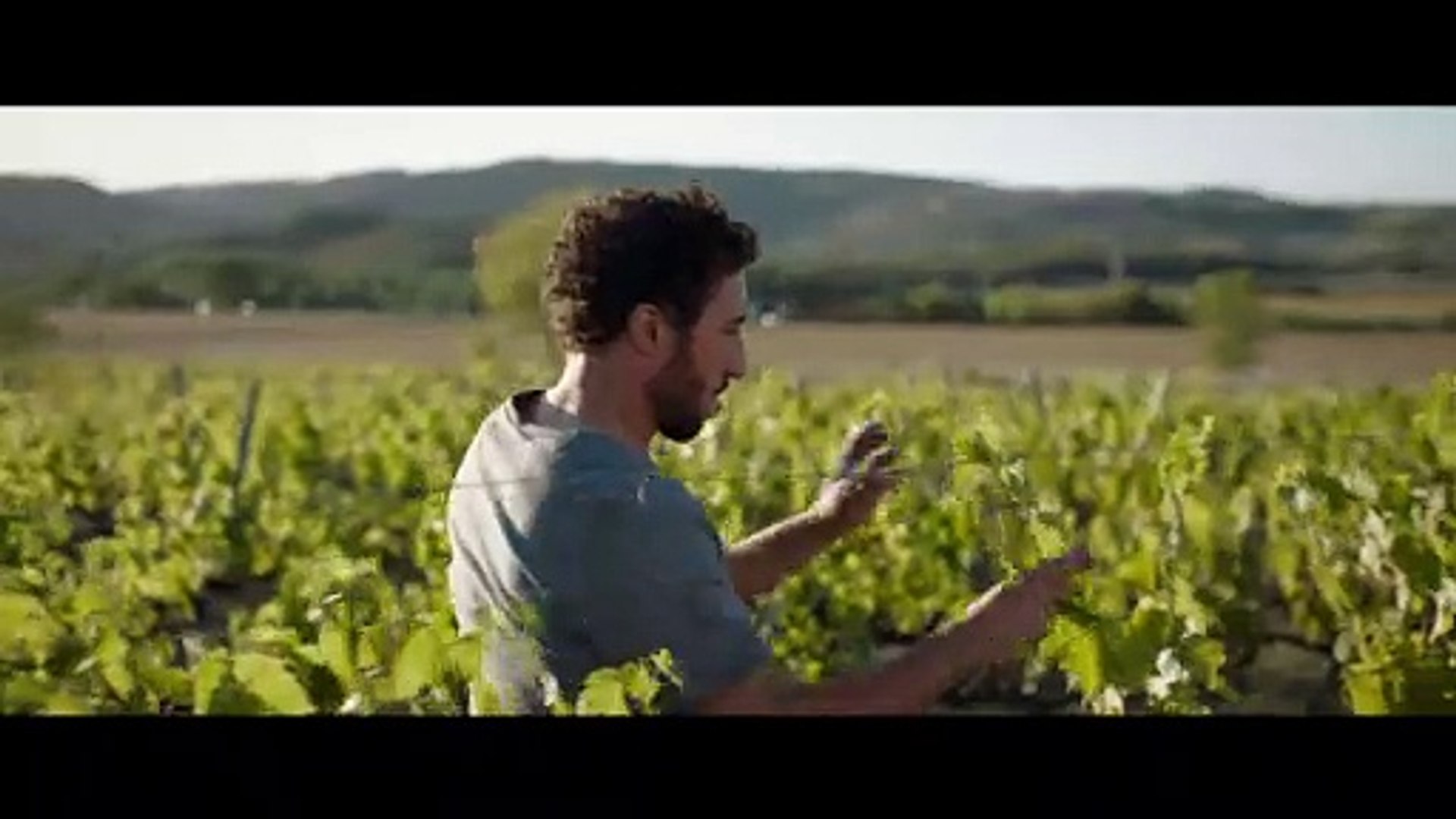 Suliane Brahim: At first I thought my character was going to die. But if she dies in the end, it would be very selfish for her children. Everything is for her, through her, but actually no, she does this for her children. In the meantime I became a mother, and it's true. I have a more selfish view now.
Suliane Brahim: At first I thought my character was going to die. But if she dies in the end, it would be very selfish for her children. Everything is for her, through her, but actually no, she does this for her children. In the meantime I became a mother, and it's true. I have a more selfish view now.
What are your biggest regrets about the film?
Just Philippot : You have to accept on the first day that it 's not the film you had in mind but it's exactly the one you wanted to make. I was lucky enough to be able to do everything. Inevitably there are things that we have done less well. But I have no regrets as such. Apart from perhaps having had more resources on certain passages that could have made it possible to go even further. But I don't know. We can't replay the game otherwise we will ruin our lives. There are no regrets, only learnings that have made me stronger. I didn't know the effort of a feature film, what it could give and involve. It's like a marathon, once you've done it, you can go further on the next one. https://youtu.be/ZgdxOvoHhGc















![[Live Report] Rock En Seine 2024 : 20 ans et toujours aussi passionnés !](https://www.justfocus.fr/wp-content/uploads/2024/11/RES24_JOUR01_LANA-DEL-REY_LOUIS-COMAR-12.jpg)
















